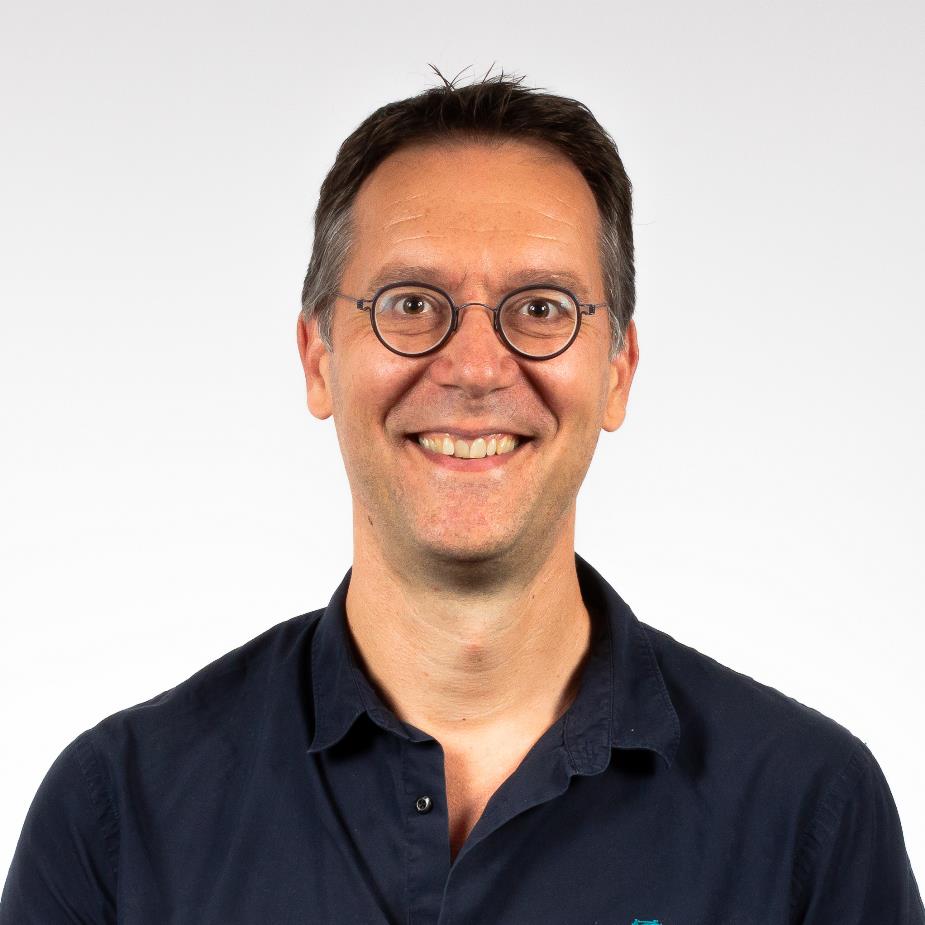Professor Frank van Eekeren says goodbye: ‘Sport has a major social impact’
15 August 2022
Sport brings people together. That was the starting point for the new research group Impact of Sport. Three years later, professor Frank van Eekeren is leaving THUAS.

Sport brings people together. That was the starting point for the new research group Impact of Sport. Three years later, professor Frank van Eekeren is leaving THUAS. ‘Together with students and organisations involved in sport, we have conducted amazing research about the social relevance of sports.’
‘In today's world, people often live in their own bubble. People feel less involved in their immediate environment. There is increasing loneliness and many people live on the fringes of society. Sports can strengthen social participation and consequently social cohesion.’
New research group
The vision that sports can contribute to a vital, resilient society was the main reason for setting up the Impact of Sport research group. ‘Together with colleagues and the municipality of The Hague, we shaped and provided substance to the research group right from the start. Using action research and innovations in living labs, we look for answers to the question of the social significance of sports. We focus specifically on inclusion, integration and vitality,’ explains Frank.
Living labs
The research group's largest research project focuses on the immediate vicinity of the Zuiderpark Sports Campus. Frank: ‘The residents in this area are very diverse. There are many sports facilities, but participation in sports activities is low. At the same time, people have little involvement in the neighbourhood. In living labs, the THUAS researchers, together with students, residents, the municipality and sports and educational associations, experimented with new forms of collaboration in sports.
Schoolyard
‘In this project, we deliberately chose to approach people who have the most difficulty with sports,’ Frank continues. ‘In this project, for example, we focused on mothers with a migration background.’ By literally talking to women in the schoolyard, the researchers slowly gained their trust. Frank: ‘We went for a coffee together, visited the sports centre and offered a space for their own initiatives.’
High-hanging fruit
According to the outgoing professor, policymakers often focus on the low-hanging fruit: getting people to exercise who only need a little push. ‘We focus on the high-hanging fruit. People who are not considered accessible, such as residents with a non-Western migration background, but also specific groups of young people and elders. From a social point of view, there is a lot we can gain here, and often we can do a lot more than we think.’
Minor and study trip
The research group has explicitly looked for ways to connect with education. For instance, it set up the Impact of Sport minor, which involved Sport Studies, Communication and Social Work students in its research. It also developed collaborations with universities and sports organisations in Cologne, Prague and Dublin. Frank: ‘Our students who are going to participate in the minor in this academic year will go on a study trip to a vulnerable neighbourhood in Dublin. That will be a wonderful learning experience.’
Valuable
For the past three years, Frank has combined his work as professor with his work at Utrecht University. As of 1 September, he has been appointed Professor of Sport & Society and will fully resume his work at the research university. ‘The connection between research and education at a university of applied sciences was a valuable learning experience for me. You always ask yourself the question: how do our students or the professional field benefit from this research?’ Frank found that THUAS had a unique atmosphere. ‘When you walk around here, you see, feel and experience diversity. That serves as an example for many other knowledge institutes.’